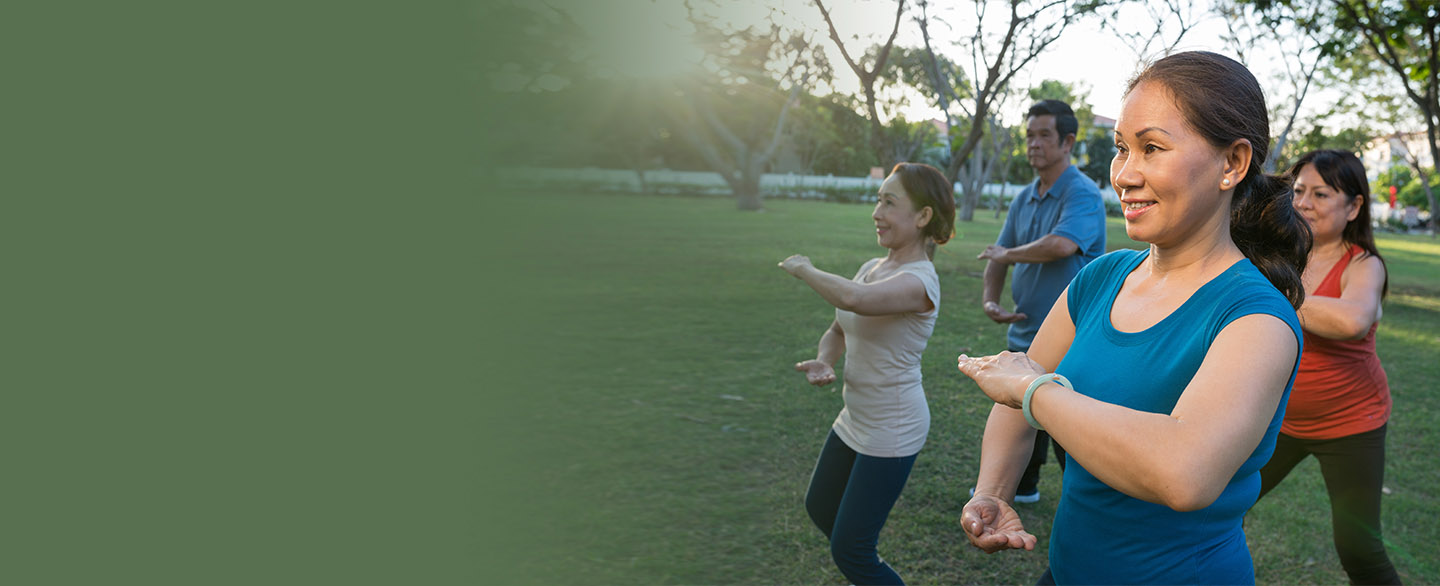- Home
- Health Resources
- Turning Point
- Classes and Programs
- Resilience Toolbox
- T'ai Chi
- Why Does Tai Chi Reduce Stress
T'ai Chi

Why Does T'ai Chi Help Relieve Stress?
Think of t'ai chi like meditation, only with movement added. The movements in t'ai chi help stretch, rotate and twist muscles, tendons and ligaments in the body. They'll be gently stretched and released, helping release tension in our bodies. T'ai chi is unlike the exercises we grew up with, in the sense that t'ai chi is meant to be effortless. This leads to a sense of "being massaged" when flowing through the t'ai chi movements after a bit of practice over time. Yet, as gentle and effortless as t'ai chi becomes, when practiced regularly, the physical benefits of t'ai chi can be comparable to resistance training and brisk walking. In fact Time Magazine's article on April 28, 2017, "Why Tai Chi is as Good for You as Crossfit," was a bit stunning given that t'ai chi is perhaps the lowest impact exercise known, even safe for those with rheumatoid arthritis using specialized t'ai chi forms.
While the movements are improving your physical health, the medatative aspects of t'ai chi help the mental side of things. Practicing t'ai chi can improve our moods, as well as lessen the effects of depression and anxiety. Regular meditation practice helps rewire the brain in response to certain experiences. These improved connections help shore up our emotional stability, meaning our brains are able to cope better with the daily stresses we face and feel more in control during difficult situations. In fact, research shows that those who meditate are better able to redirect negative and harmful thoughts altogether.
Watch this short video to see how a University of California Irvine professor is using his own research to prove the sterss-reducing qualities of practicing t'ai chi.
While enjoying the improved physical health t'ai chi offers, and the mental/emotional benefits of t'ai chi meditation aspect, you will discover your performance on all levels will improve, becoming more powerful and paradoxically more effortless. This "effortless" approach to life t'ai chi cultivates is transformative on many levels, and perhaps best exemplified in the unbendable arm t'ai chi exercise.
Learn more – how does t'ai chi work and what are the movements